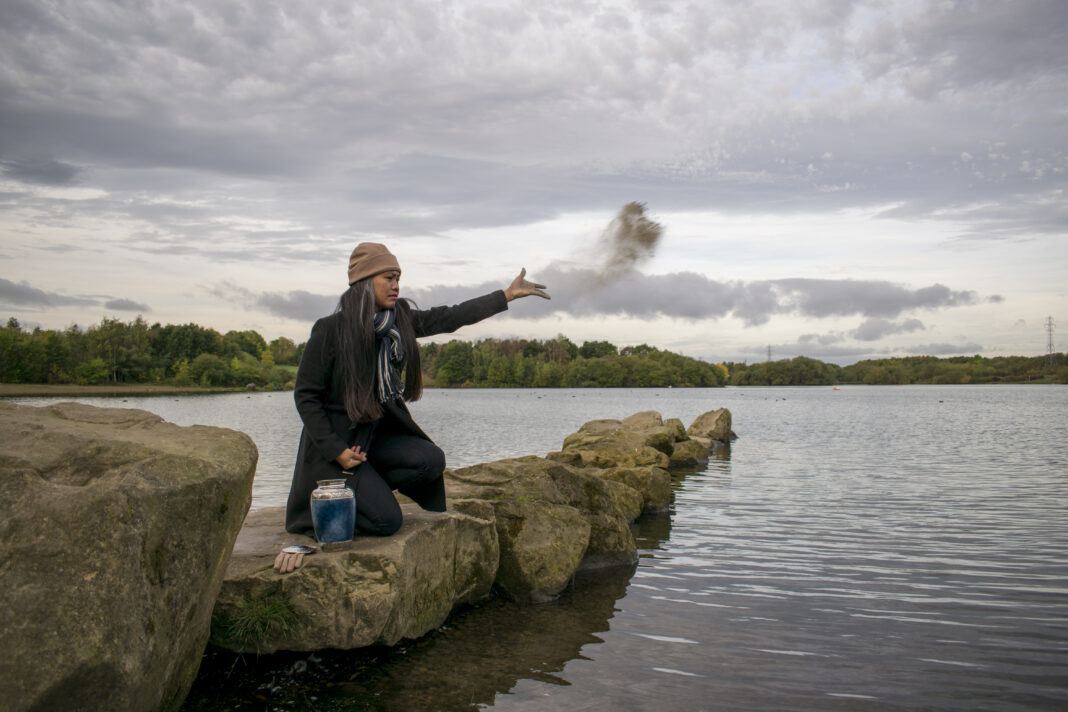Humanist funerals and memorial ceremonies are non-religious ceremonies that focus on the person who has died, the life they led, and the relationships they forged. They are based on the humanist perspective that every life is individual and valuable. Each humanist ceremony is unique, and created to mark the life of the person who has died.
Every ceremony is individually written by the celebrant, but the content is up to you. It can include a tribute and any music, readings, poetry, or symbolic gestures you choose. You can plant a tree, light candles, sing songs, or raise a glass in honour of your loved one.
Humanist funerals
A humanist funeral is the ideal option for families who want a sincere, personal reflection on the life of their loved one. The funeral ceremony is conducted by a humanist celebrant and it is both a celebration of a life and a dignified, personal farewell.
Most humanist funeral ceremonies are conducted at a crematorium, cemetery, or green burial site. However, as funeral ceremonies have no legal status, they can be held wherever you choose.

Memorial ceremonies
Like a humanist funeral, a humanist memorial is a non-religious ceremony that is about the person who has died but, with a memorial, there is no coffin present.
A humanist memorial is conducted by a celebrant and it is both a celebration of a life and a dignified, personal farewell – a sincere, personal reflection on the life of a loved one, without having a religious dimension to the ceremony.
A memorial can be held anywhere: at home, in the garden, in a park or woodland, at the beach – anywhere of relevance to the people gathering to pay tribute to the person who died.
At a memorial service, instead of the casket, the ashes may be present – or in some cases, a photo of the deceased. The ceremony allows people to come together to grieve, remember, and celebrate a life lived. Such ceremonies can take place anywhere that is suitable and fitting, and at any time.
With the flexibility of being able to take place at any time after the death, memorial ceremonies are accessible to families who must travel great distances to come together and who may not all be able to gather immediately following a death.
Your humanist funeral celebrant can discuss with you an ashes-centred ceremony and the options and regulations for interring or scattering the ashes.

What happens at a humanist funeral or memorial ceremony?
Each ceremony is unique and there are no rules about what ‘must’ be included, or in what order. However, if you are planning a funeral or memorial, you might find it helpful to have an idea of the structure of a typical ceremony, whilst recognising that the content will be unique.
Example of the structure of a ceremony
- Introductory music
- Words of welcome
- Thoughts on life and death from a non-religious perspective
- The tribute – the story of the life and personality of the person who has died
- Readings of poetry and prose
- Reflection – a few moments for private thoughts about the person who has died, either in silence or accompanied by music
- The committal – when the curtains are closed or coffin lowered
- Closing words
- Final music
Your local celebrant will guide you through the options.
Planning your own funeral
During a discussion about a pre-planned ceremony, your celebrant will talk to you about the format and content of the ceremony you would like to have.
The discussion will include:
- Your life story and anecdotes you would like to share
- Which poems or readings (if any) should be read
- What music should be played (if any)
- Who you would like to be involved
- Dress code (if any)
- Symbolic acts – such as a tree-planting or the scattering of your ashes
Your wishes will be recorded and securely stored. Any notes or scripts that the celebrant has written will be kept in a secure repository. You can find a funeral celebrant who offers the pre-planned service via our map.






